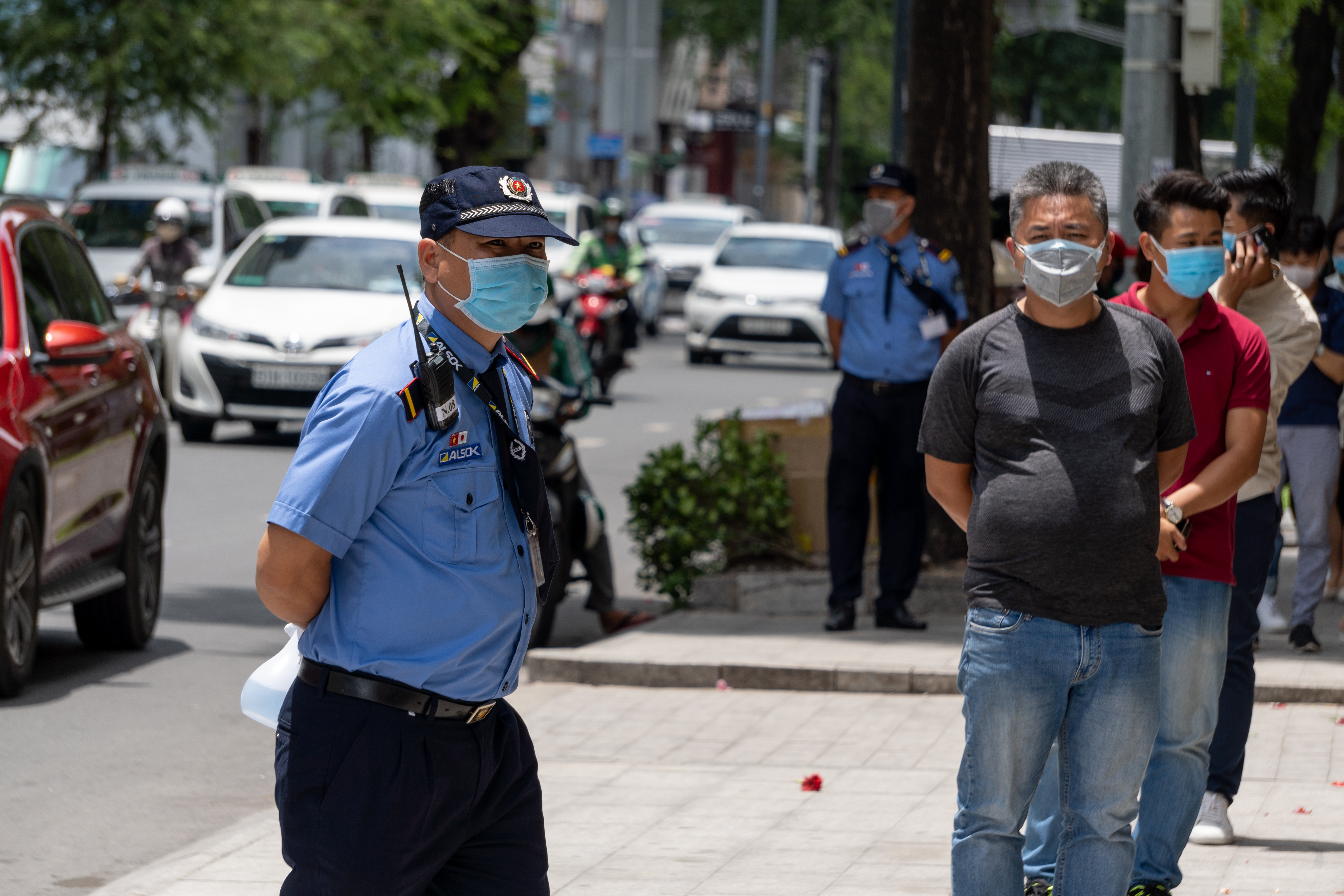Covid Vaccine Trial Successes Lifted Hopes Globally. But Vietnam Not Letting Guard Down.
November 18, 2020Optimistic news about the encouraging success rate of two COVID-19 vaccine candidates in the United States was met with enthusiasm, hope, and stock market jumps. But it was barely a blip in Vietnam, where daily life would appear shockingly normal to much of the world dealing with new lockdowns and second or third waves of the virus.
Walking around Ho Chi Minh City these days, there are no social distancing restrictions at restaurants and on streets, while cinemas, bars, and cafes are open and busy. Face masks are supposed to be mandatory, but many people do not wear them. Vietnam is one of a handful of countries in the world that is poised to emerge from the pandemic relatively unscathed. It has contained the pandemic as well as almost any other nation.
At the time of writing, Ministry of Health statistics show that Vietnam has recorded 1,288 COVID-19 cases and 35 deaths related to the virus since January. Only 126 of those cases are currently active, and it has been nearly three months since any community transmission has been detected - though there have been a couple of scares likely related to false positives.
In comparison, the United States reported 149,000 cases on Nov. 16 alone, and that was without Texas reporting data.
All of Vietnam’s recent cases have been people entering the country from abroad, who are quarantined for 14 days upon arrival, either at designated quarantine hotels or government facilities. As a result of these successful ongoing border restrictions, there is no desperate scramble for a vaccine to return to normal amid the general public, as a new normal is already in place.
This is not to say that there are no domestic vaccine efforts underway, or that Vietnam does not want to reopen its borders: trials of one candidate vaccine began on 12 rhesus macaques late last month, while human trials may begin on another this month.
Two other vaccines are currently in development in Vietnam, while in August the Vietnamese government announced intentions to buy up to 150 million doses of Russia’s COVID-19 vaccine, though it is unclear where those plans stand.
But it is not wagering it all on the success of these plans, and is prepared to dig in for the long haul. Earlier this month, Deputy Prime Minister Vu Duc Dam, who leads the country’s coronavirus task force, told state media that the government will continue to focus on its thus-far successful containment strategy. “The vaccine is a story for the future,” he was quoted saying. “Demand is far higher than supply, and we have to pay large deposits to secure our position, which I see as very high risk and a waste of money and time.”
While it is not exactly clear how much Vietnam’s current vaccine efforts are costing, or how much it would cost to buy substantial amounts of vaccine doses from another country, in September, Dam said that the country’s containment strategy had cost less than $400 million at the time, a relatively small sum considering how well it has worked. Some critics contend that this has only been possible because Vietnam has a single-party government with brooks no dissent, but the public health outcomes are hard to dispute.
Thanks to this ability to largely maintain normal economic activity, Vietnam’s economy is actually expected to grow by up to 3 percent this year. This figure is a steep drop from 7 percent growth in 2019, but far better than other countries which have experienced severe COVID-19 outbreaks and economic despair.

A major exception is international tourism, which has been nonexistent since late March when inbound commercial flights were suspended, a status that has not changed.
“This year the tourism sector will likely see total revenue decrease by over US$23 billion,” Kenneth Atkinson, Vice Chairman of the Vietnam Tourism Advisory Board, told VICE World News. “Foreign visitors last year contributed more to revenue and GDP than the domestic market, so continued closure of our international borders will continue to have a devastating impact on the tourism and hospitality sector.”
He added that a vaccine could open up travel bubbles from countries that have a proven record of containment of community spread and people from that country who have been vaccinated.
Regionally, Thailand, which has also kept infection and death totals low through restrictions and widespread mask wearing, aims to begin rolling out vaccinations sometime in the first half of 2021. Neighboring Cambodia has fared well too, and is considering the Russian vaccine.
While the government is not in a mad rush to get a vaccine, it is planning for the day when one arrives. On Sept. 30, the Ministry of Health met with PATH, the global public health nonprofit, and the British Embassy in Hanoi to discuss strategy for the introduction of a COVID-19 vaccine.
At the conference Dr. Vu Minh Huong, Regional Technical Advisor at PATH’s Center for Vaccine Innovation and Access, said: “Given the unique situation we face with COVID-19, it is especially important that vaccine manufacturers and regulatory agencies understand and agree to appropriate mechanisms, policies, and regulations to work towards expediting a COVID-19 vaccine while maintaining safety and efficacy.”
This sort of work will likely continue behind the scenes in the coming months, while Vietnam’s border restrictions and robust contact tracing remain the country’s front line defense against the pandemic.
